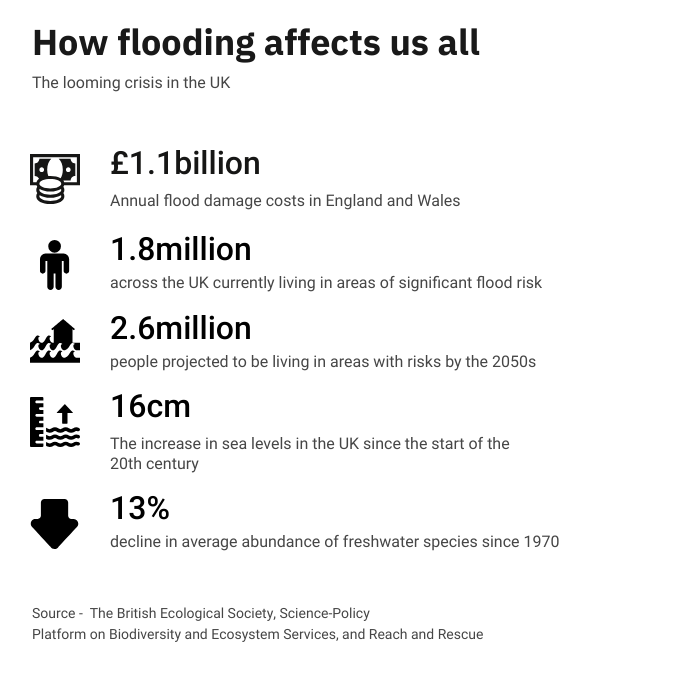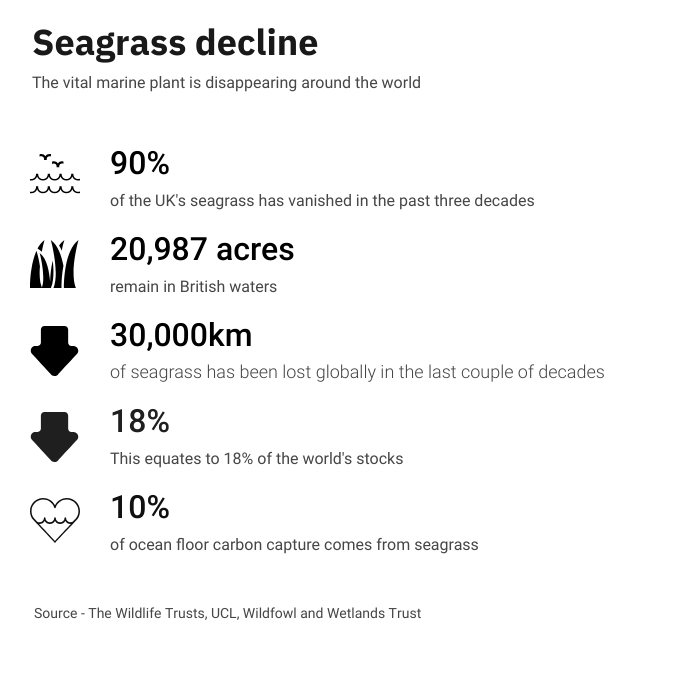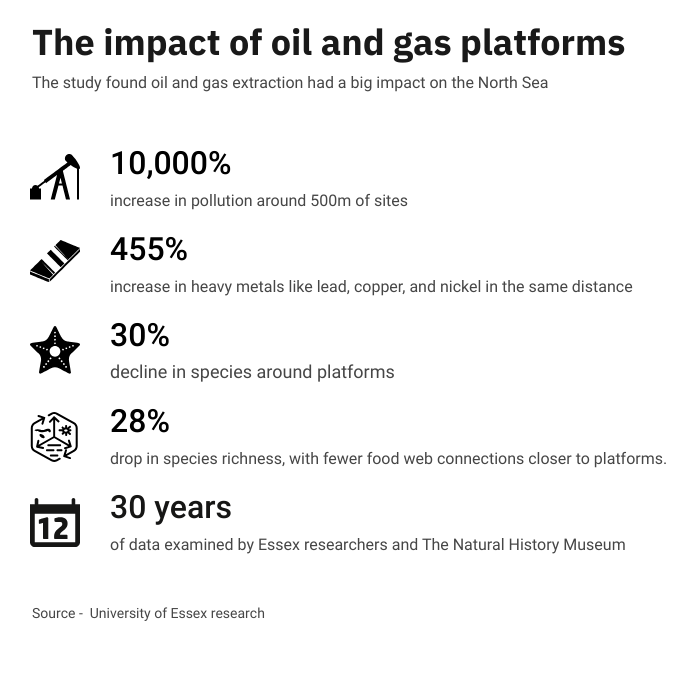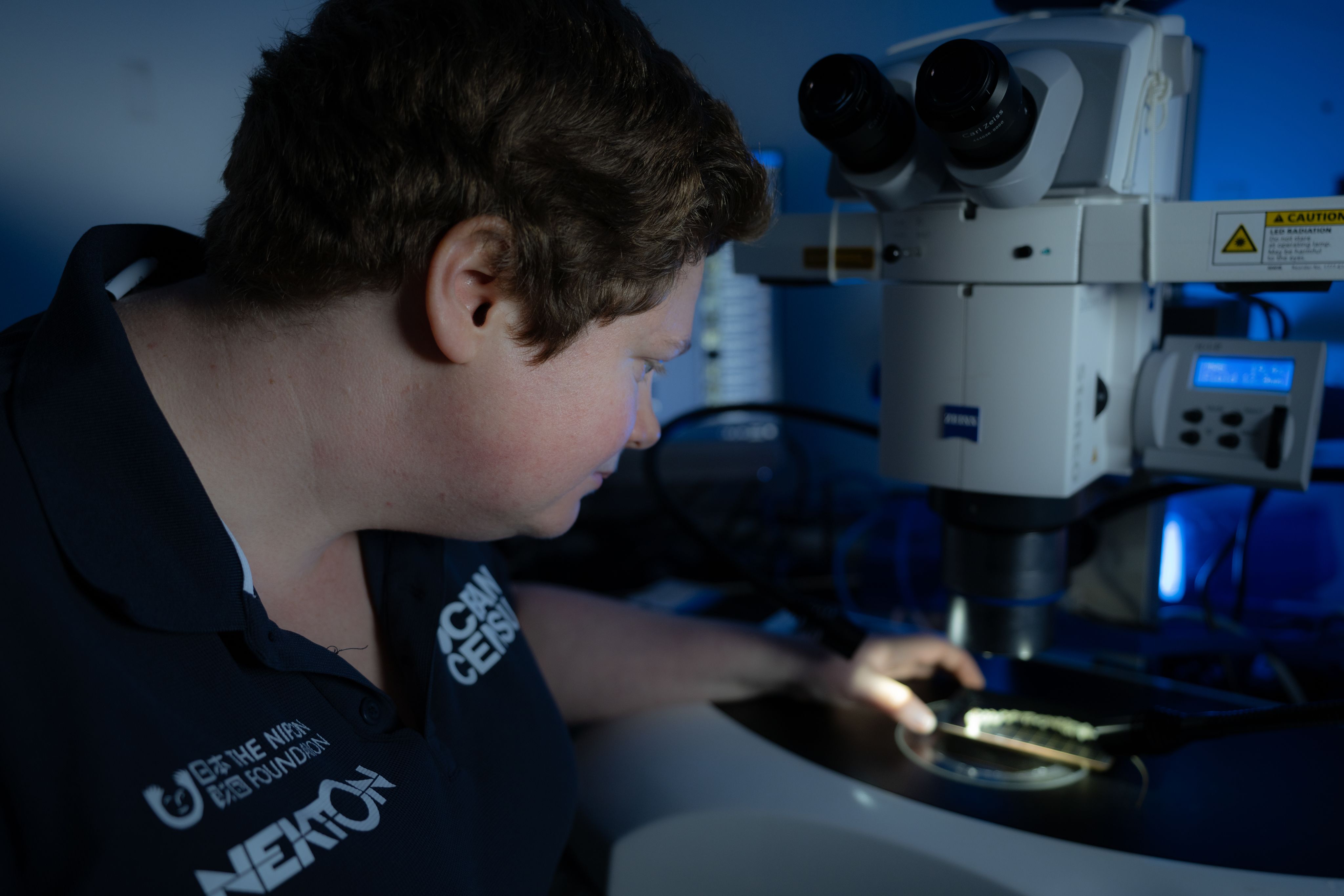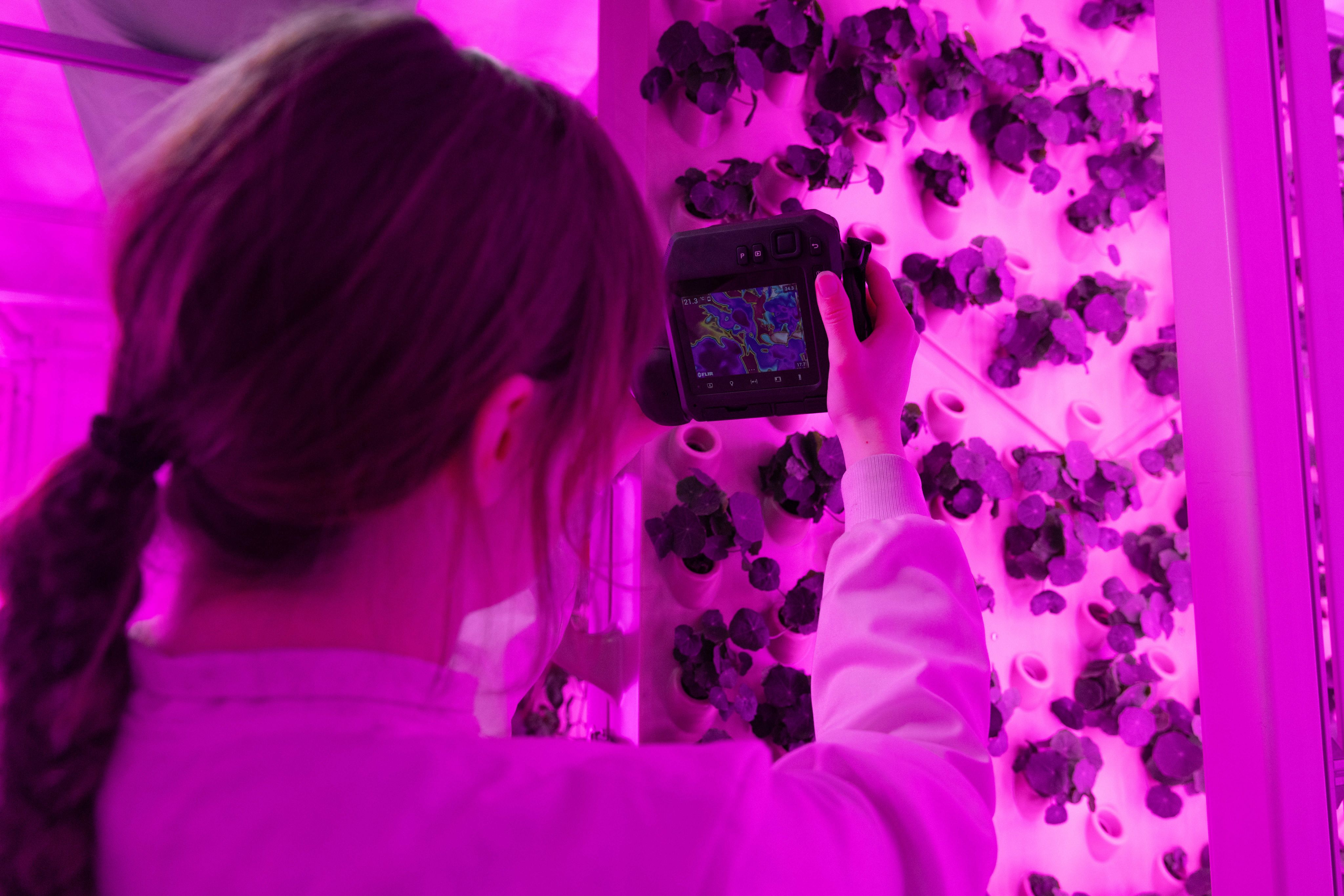Leading the fight for tomorrow

Our world is facing an unprecedented crisis as the climate changes - impacting everyone's lives.
To fight back and learn how we will be affected, the planet needs the next generation of scientists.
At Essex we are training, nurturing and empowering these future leaders for the global good.
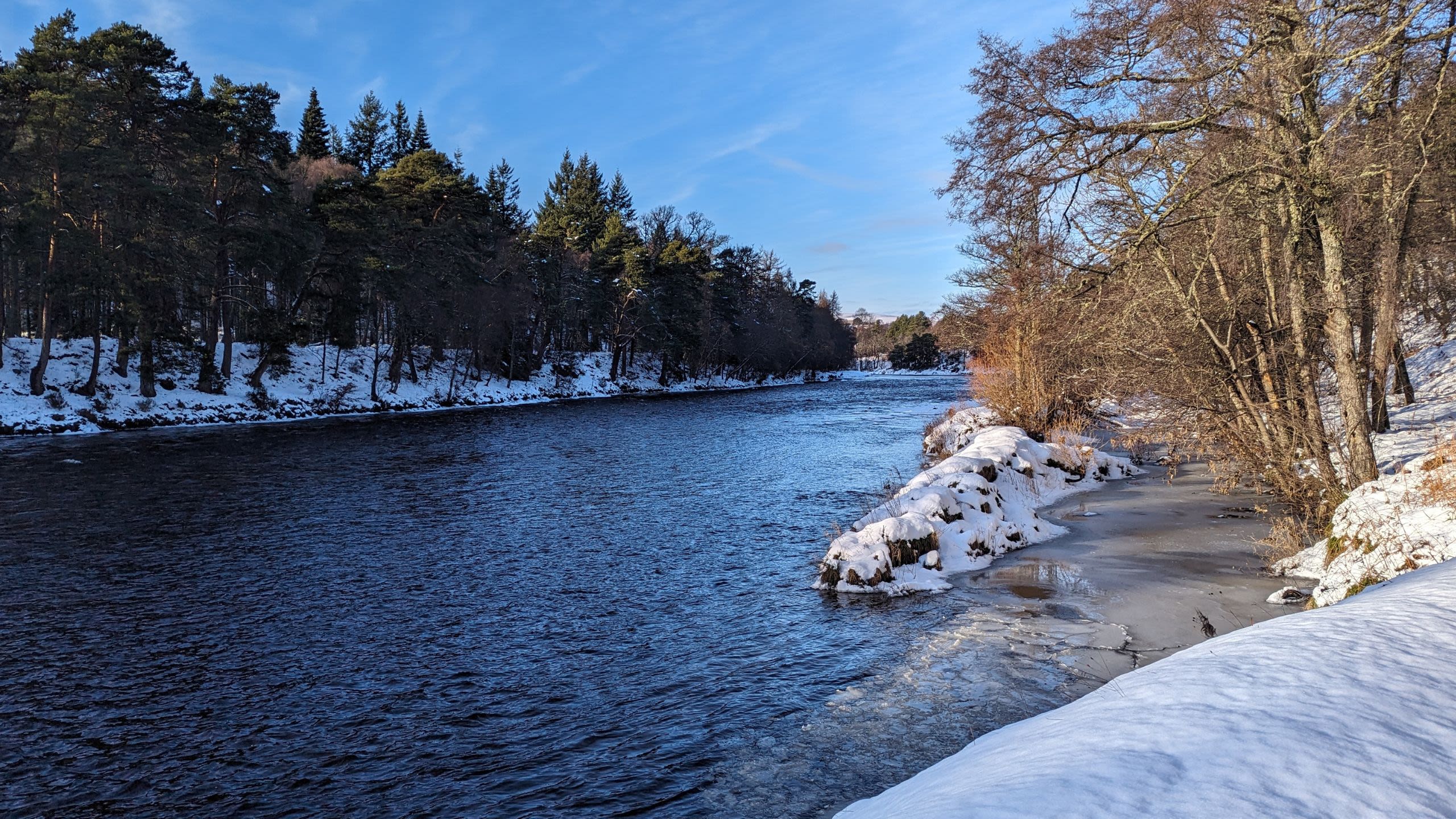
The University of Essex is dedicated to developing scientists and giving them the skills to tackle the triple threat of climate change, pollution, and plummeting biodiversity.
Learning from world-leading researchers within the School of Life Sciences our PhD students are out in the field and in the lab, collaborating with industry, policy makers, and under-threat communities.
Working with government agencies like the Centre for Environment, Fisheries and Aquaculture Science and famous organisations like Beth Chatto Gardens these students are making real change.
By influencing industrial practice and government guidelines our researchers are ensuring science is at the forefront of the decisions being made at the highest level.
By working with established researchers on long-running projects our PhDs are part of a vibrant supportive community dedicated to public engagement.
Making use of state-of-the-art facilities, such as the new £3m climate crop STEPS lab, Essex is giving future leaders the tools to take their research to the next level.
Whether this is learning more about greenhouse gas emission, restoring our coasts or discovering the long-term legacy of off-shore fuels - Essex is leading the way to protect our planet.
Three of our PhD researchers are at the vanguard of this essential mission.
Restoring the coast
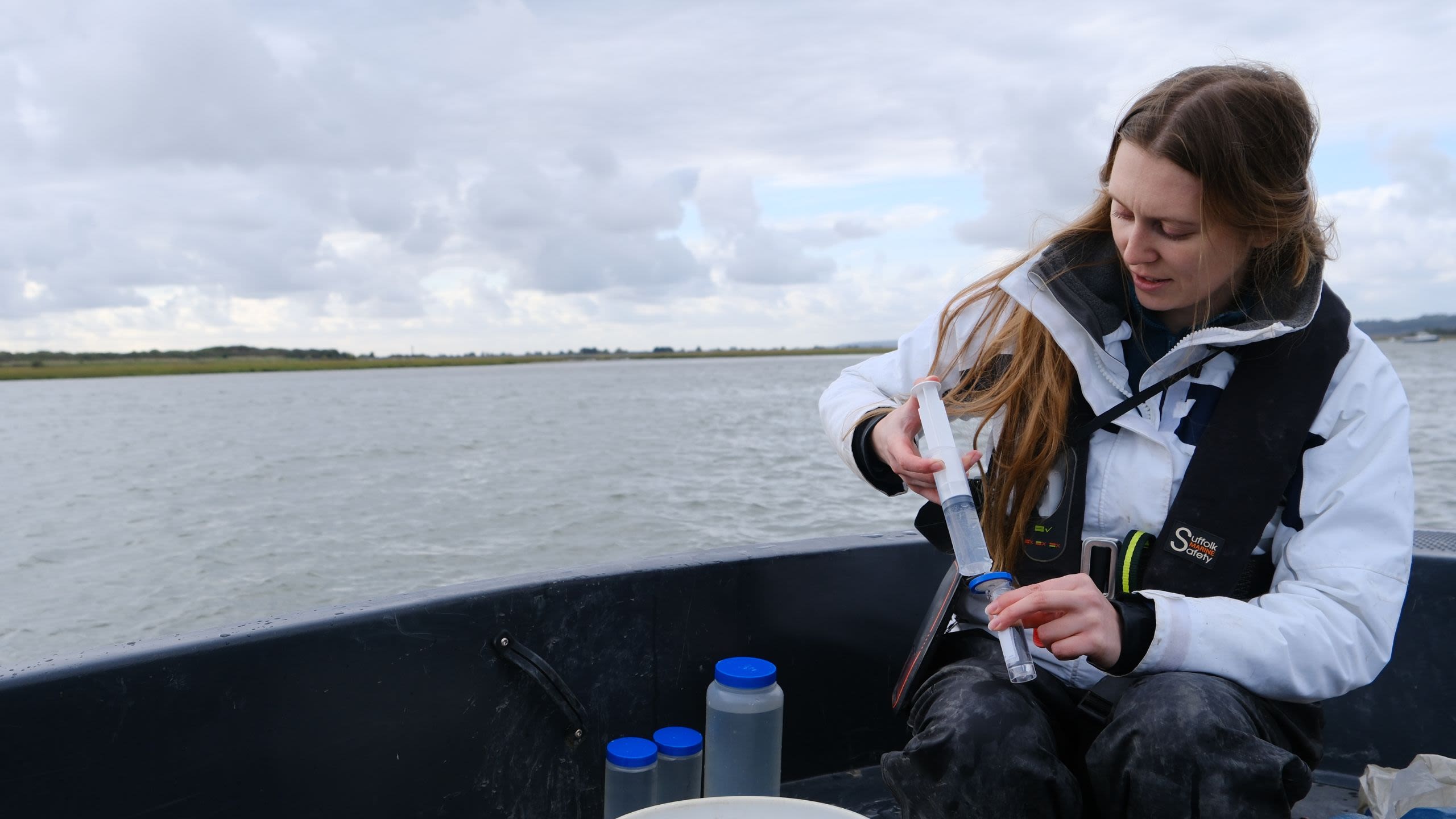
Fighting flooding
Lucinda Robinson is leading the way in finding new ways to protect coastal communities.
The 29-year-old is working with authorities across Essex, to safeguard those at risk as flooding spikes due to climate change.
The UK faces unprecedented challenges with millions of people set to be impacted.
Using nature-based solutions to protect all our futures she is part of the Catchment to Coast project - spearheading real change.
Lucinda is passionate about her work restoring salt marsh to protect the coast from sea level rise and erosion, creating new wet woodlands, damming areas of the river to store water in urban areas, and using fungus to clean water released from sewage sites during flash floods.
Find out more in the video below
The University of Essex has provided vital funding, facilities, and support to take the research further.
The pilot project will use these exciting methods to tackle flooding work and benefit local wildlife and the community.
It is hoped it will improve the security of people in their homes and provide a space for nature to thrive and grow.
"Water quality is an issue close to my heart as a nature lover and a wild swimmer, I regularly see the impacts of poor water quality on both nature and people. Wildlife and the habitats they rely on are being impacted resulting in declining bio-diversity."
Lucinda wants her work to be expanded to other areas and to change the way people look at hazards such as floods.
Instead of separating ourselves from nature with walls and engineered structures, Lucinda hopes people will see it as an opportunity to work with nature and create a holistic plan that benefits all.
To get to this stage has not been easy for Lucinda though and the dedicated researcher has battled dyslexia to complete her masters and undergraduate degrees.
And she urges anyone to pursue their passion and make real change to the world.
"I have dyslexia and I actually struggled a lot in school, I found the work really hard and spent a lot of time trying to keep up. Because of this, I was actively discouraged to pursue an academic career and several stages of my education. But my intense love of the natural world and a fascination with understanding and protecting it, and possibly a bit of stubbornness, pushed me to carry on and I am so glad I did."

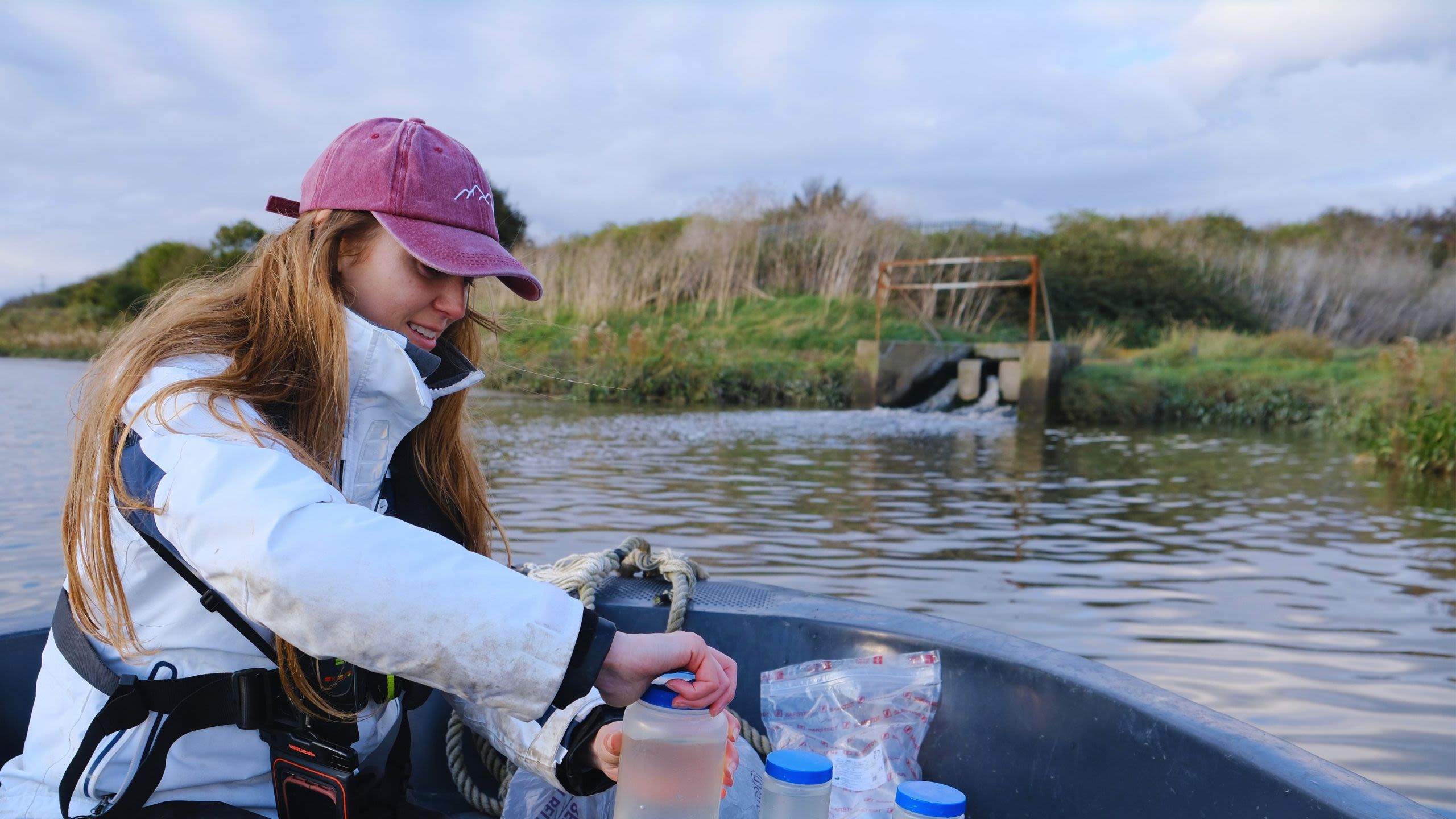
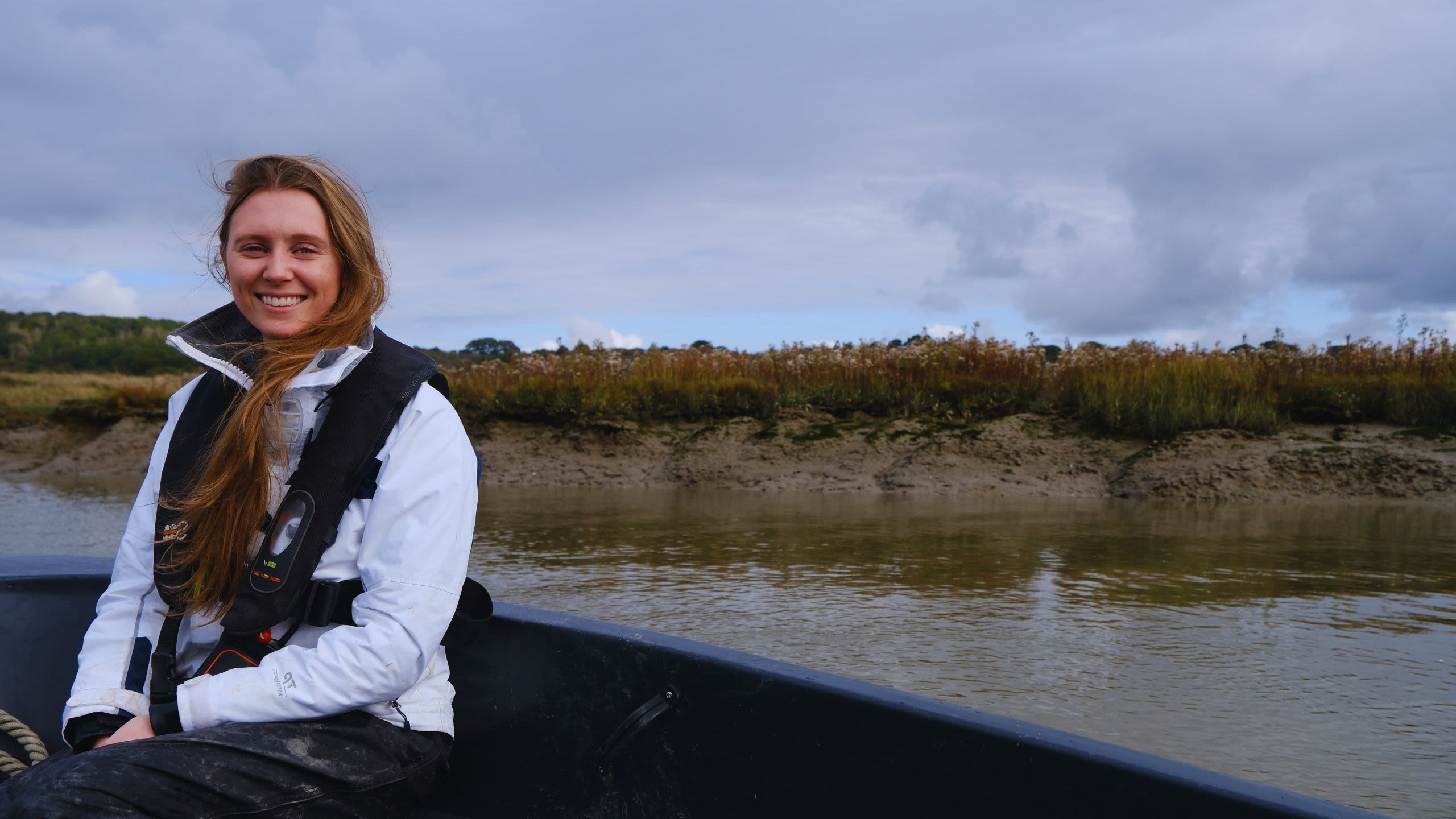
Saving seagrass
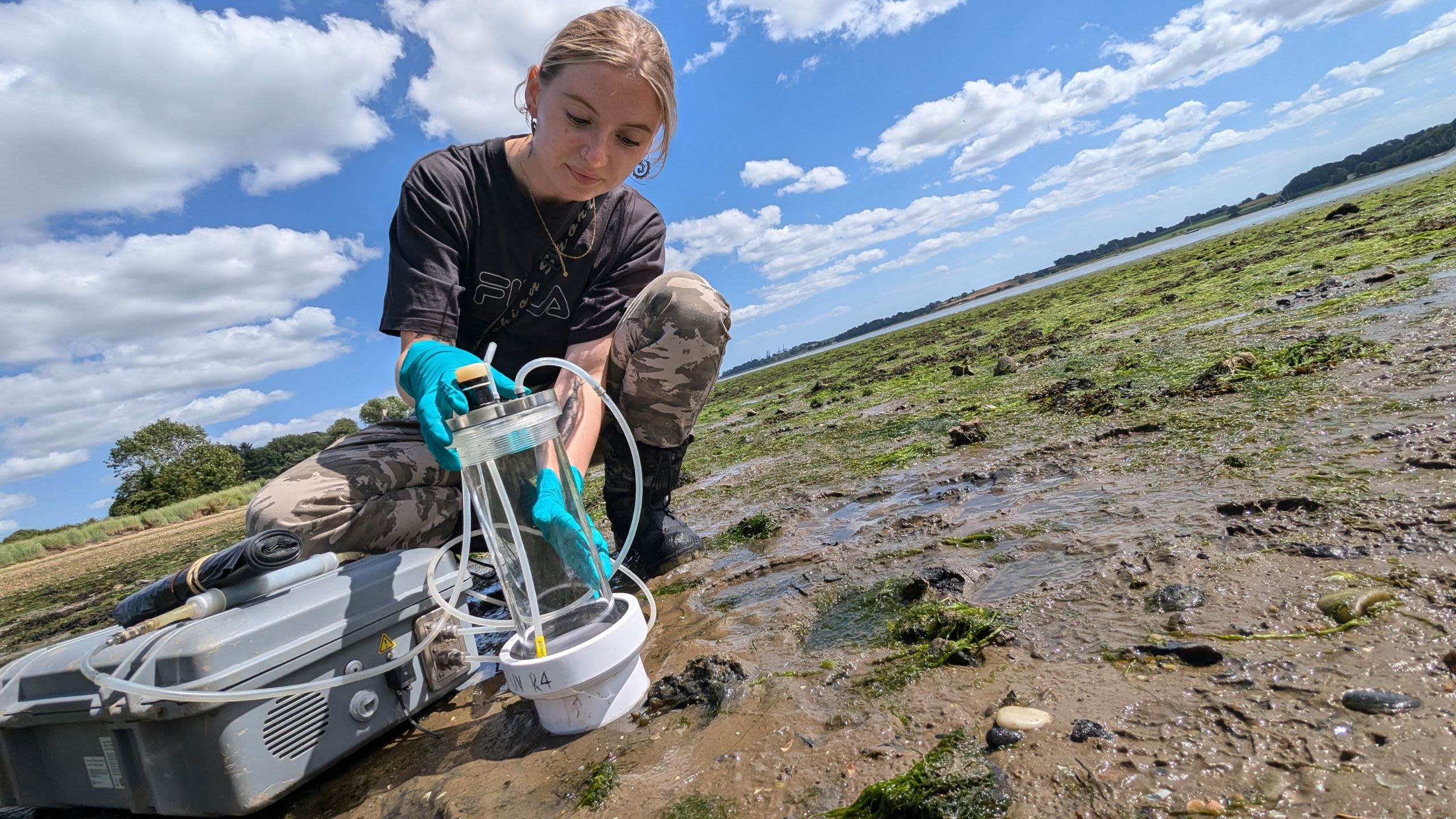
Capturing carbon
Seagrass meadows are declining around the world - but just what effect will this have on their carbon content and greenhouse gas emissions?
Alice Malcolm-McKay is on the front line of this research, exploring how Essex's aquatic vegetation affects carbon capture.
Working with one of Britain's largest ports through Harwich Haven Authority, the 27-year-old has developed a new technique for measuring seagrass' ability to cycle greenhouse gases - leading to international interest in her work.
This is increasingly vital as the global extent of the essential habitat drops and carbon dioxide levels in the atmosphere continue to rise.
Alice is paving the way, with her research into greenhouse gas emissions and seagrass carbon storage the first of its kind in the UK.
Her unique project will inspire, inform and influence industry partners, government and stakeholders, as interest grows in this blue carbon habitat.
It is hoped her research will be a "jumping off point" for scientists working in seagrass and blue carbon.
Aside from carbon capture, seagrass is a vital habitat for countless fish and invertebrate species.
It is also key for coastal protection and for improving water quality.
"I have always had a love for the ocean but my passion for helping with the current climate crisis really solidified this as a career path for me. Since I finished my undergraduate degree, I have been working with seagrass in various disciplines and the more I learn about it, the more I love it. It may not be as glamorous as a coral reef but underwater meadows, in my opinion, are pretty amazing."
Inspired to help fight global warming Alice chose to make a real impact in the world and thanks Essex for guiding her on this journey,
Praising her supervisors for pushing her to "produce the best research I can" she says it was Essex, which has shaped her career - which began with an undergraduate degree from the School of Life Sciences.
After working with an NGO in the Greek Mediterranean researching coastal habitats, Alice returned to the University for a research masters - which was converted into a PhD after just six months.
Explore the pioneering project in the video below
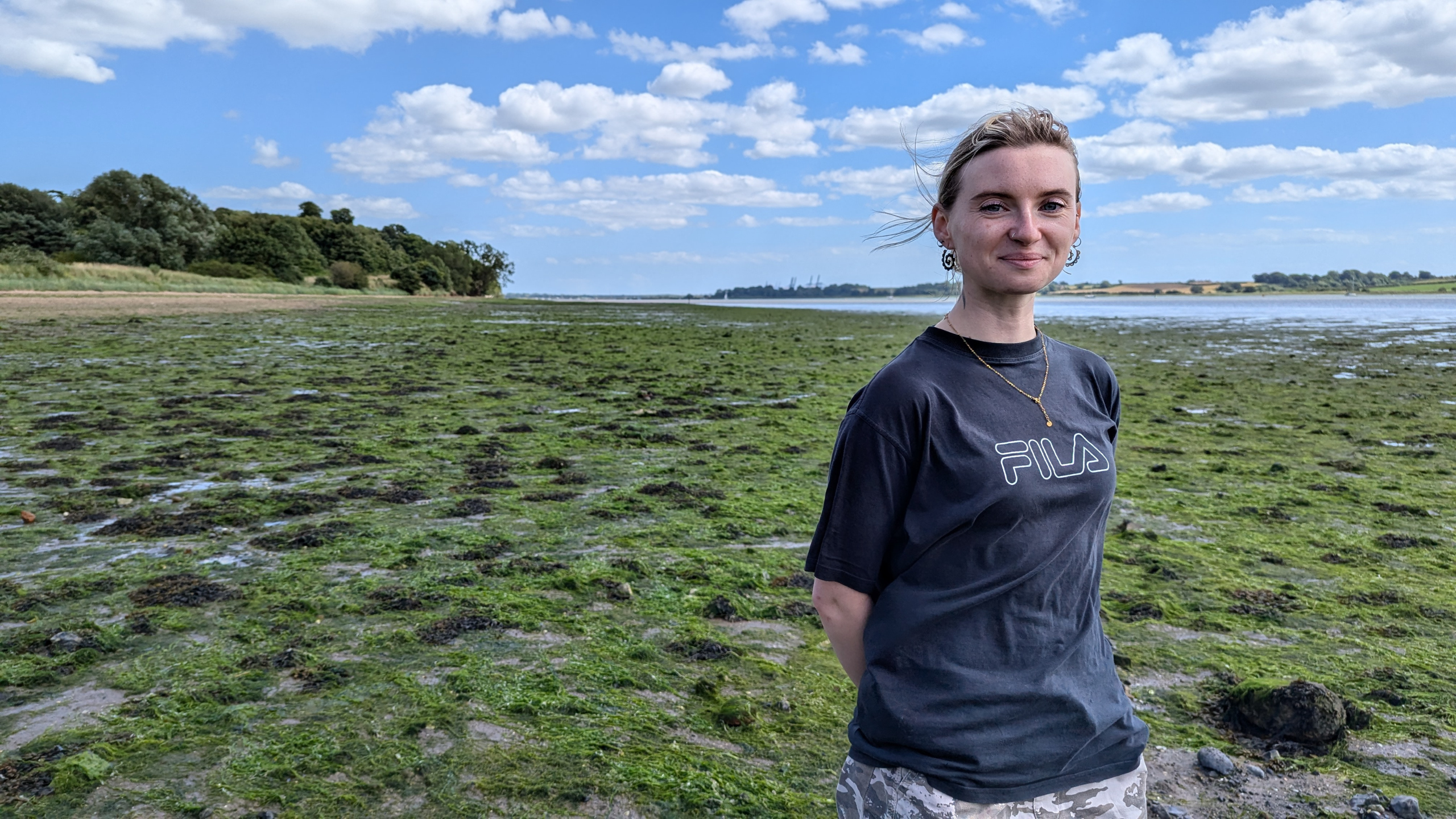
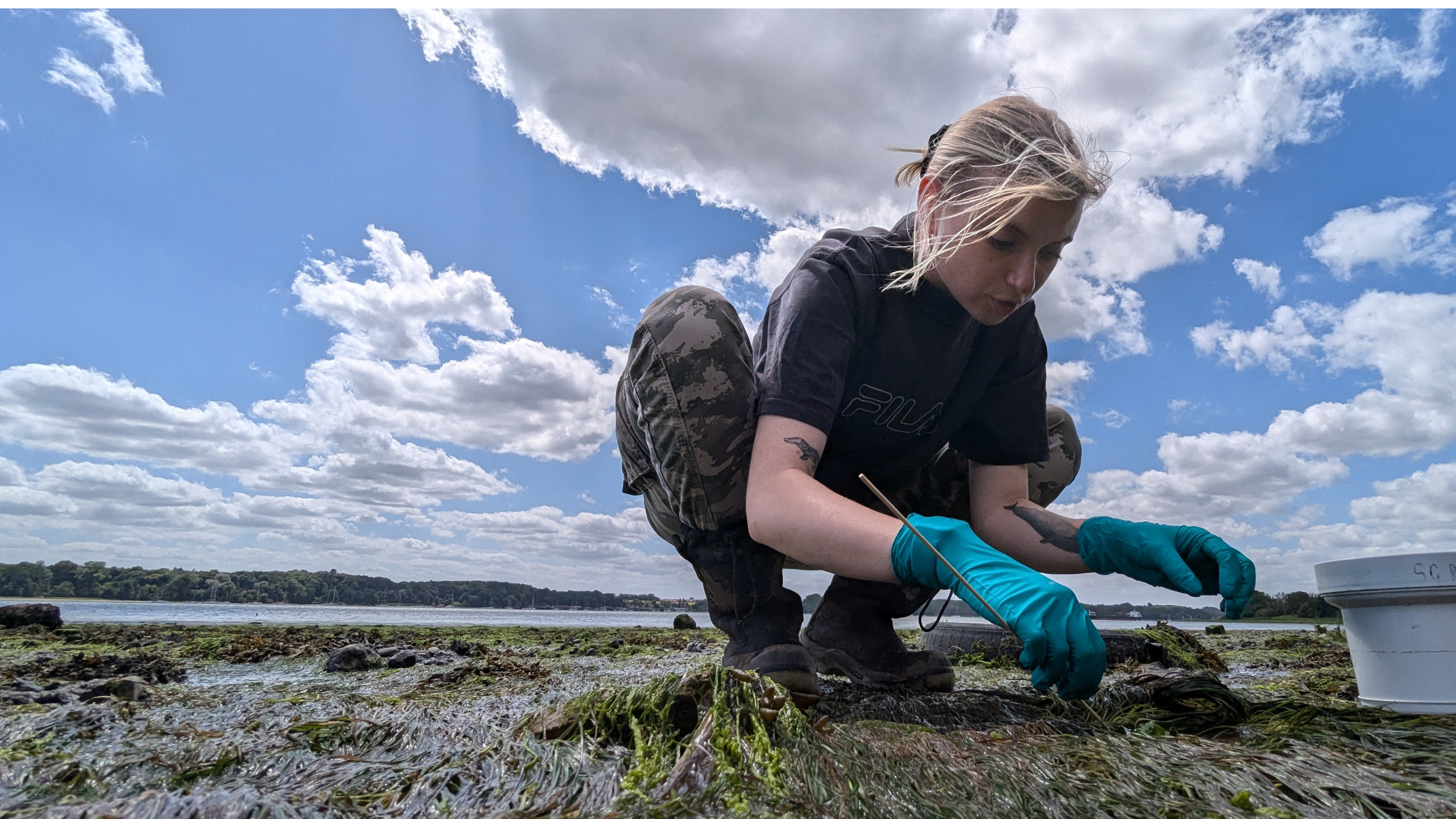
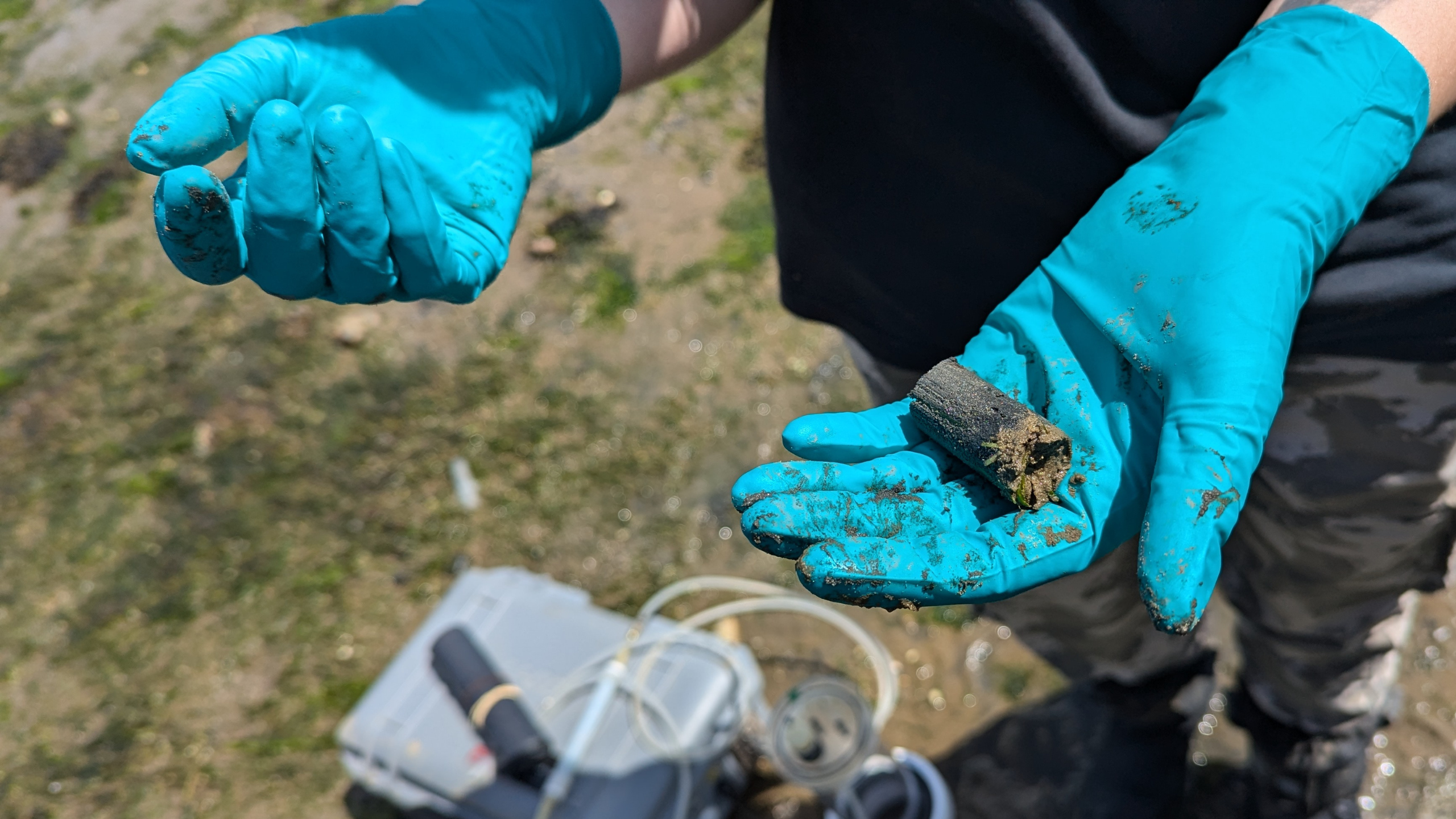
Shielding the seas
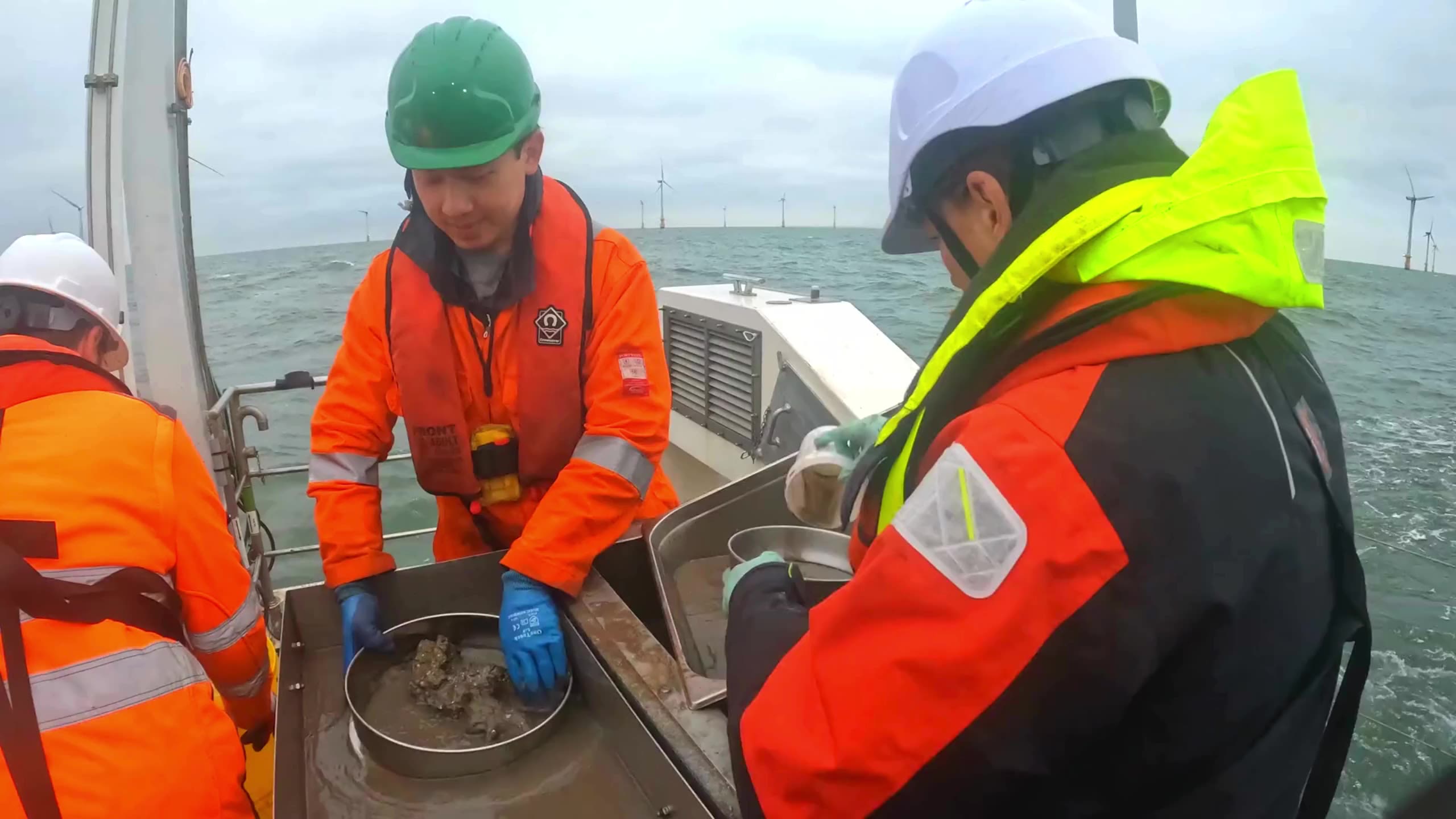
Exploring energy
As the world grapples with the urgent need for sustainable energy solutions, it's crucial to understand the environmental cost of tapping into the ocean for both fossil fuels and renewable energy sources
Zelin Chen is at the forefront of this work using his PhD to explore how wind farms and oil and gas platforms impact all our lives.
His pioneering work on North Sea platforms has shone a light on the true impact of the extraction with his research finding massive spikes in pollution.
The 29-year-old's agenda-setting science sparked international media coverage with his research featuring in prestigious outlets like the BBC World Service and The i newspaper.
Away from the work on North Sea oil, Zelin - who is originally from China - is part of a team exploring how renewable energy impacts the seabed.
Zelin worked with partners in government agencies to find out how British wind farms impact the environment.
The pioneering project led by Dr Natalie Hicks was the first time Essex researchers chartered their own vessel to study active wind farms.
Watch a short documentary about the cruise below.
Zelin's passion for marine biology has seen him travel the globe - even living and studying in America - with his work allowing him to influence policy at an NGO and seeing him work closely with the UK government.
His time at Essex has allowed him to hone his skills and the University's unique link with the Centre for Environment, Fisheries and Aquaculture Science inspired him to study in Colchester.
The School of Life Sciences was particularly supportive to his PhD application and broke new ground to champion the research.
He is the first PhD in the school to be co-funded by the China Scholarship Council and he has praised Essex for working to make his studies possible.
"I am grateful to be part of the team to learn about marine biology because it is a core part of science in addressing the conservation challenges under climate changes."
During his PhD Zelin has presented at over 10 conferences allowing him to learn from senior scientists across the globe, build his own network in academia, and sharpen public presentation skills
Now Zelin is expanding his research into the effect of decommissioning oil and gas platforms to see how the structures impact the sea bed. Plans are also afoot to delve into fish surveys to uncover fossil fuel's impact on marine stocks.
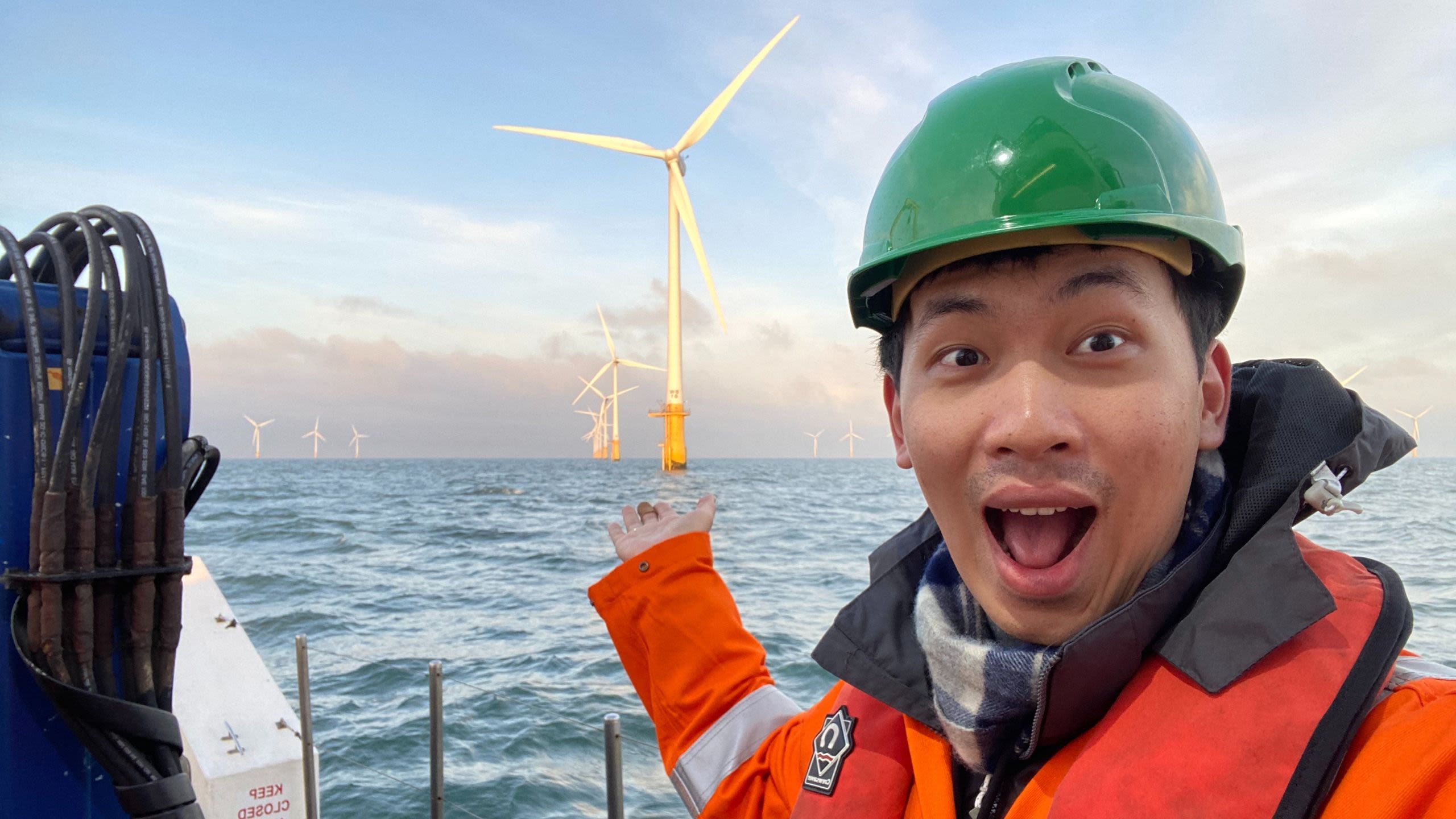
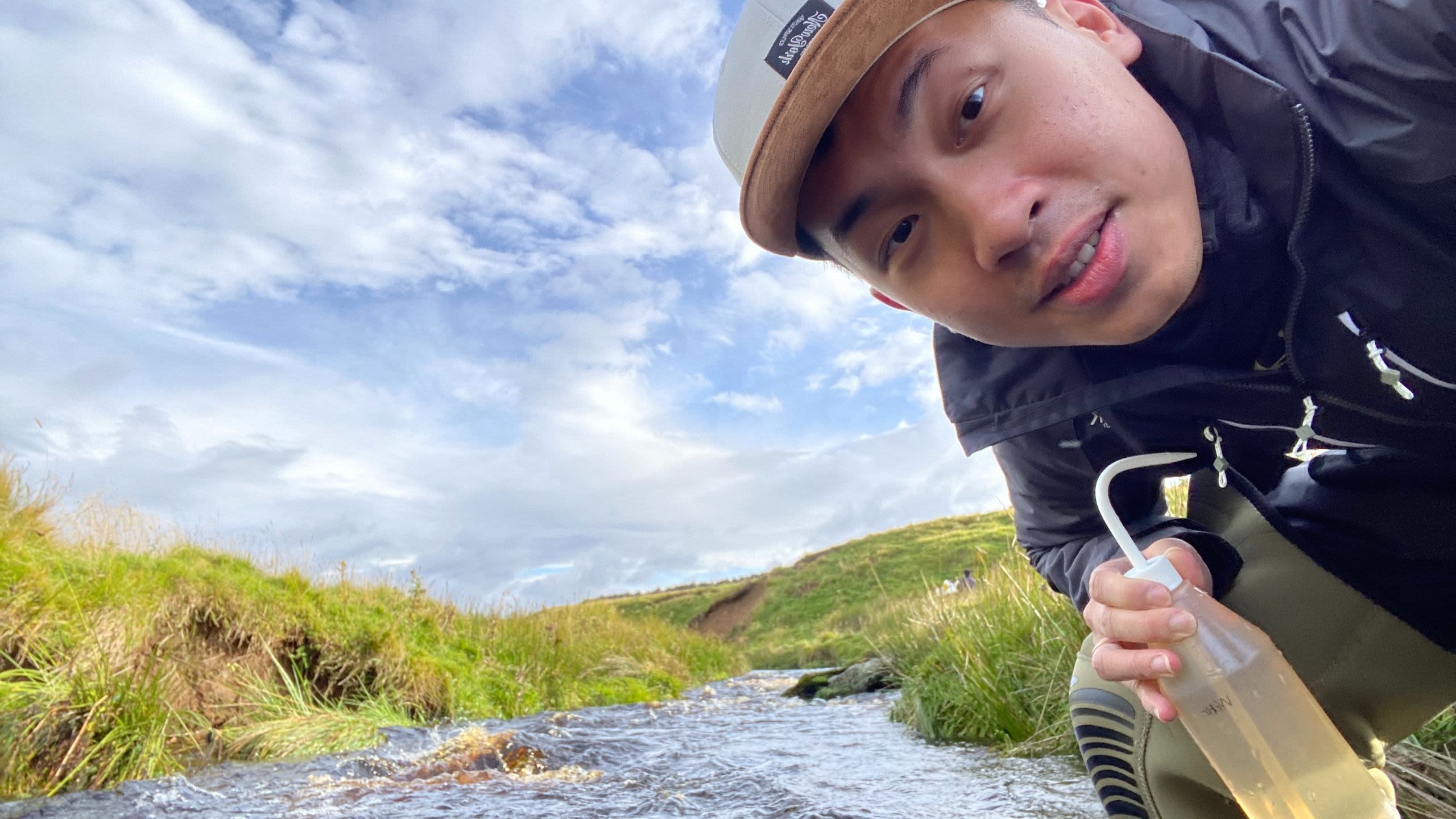
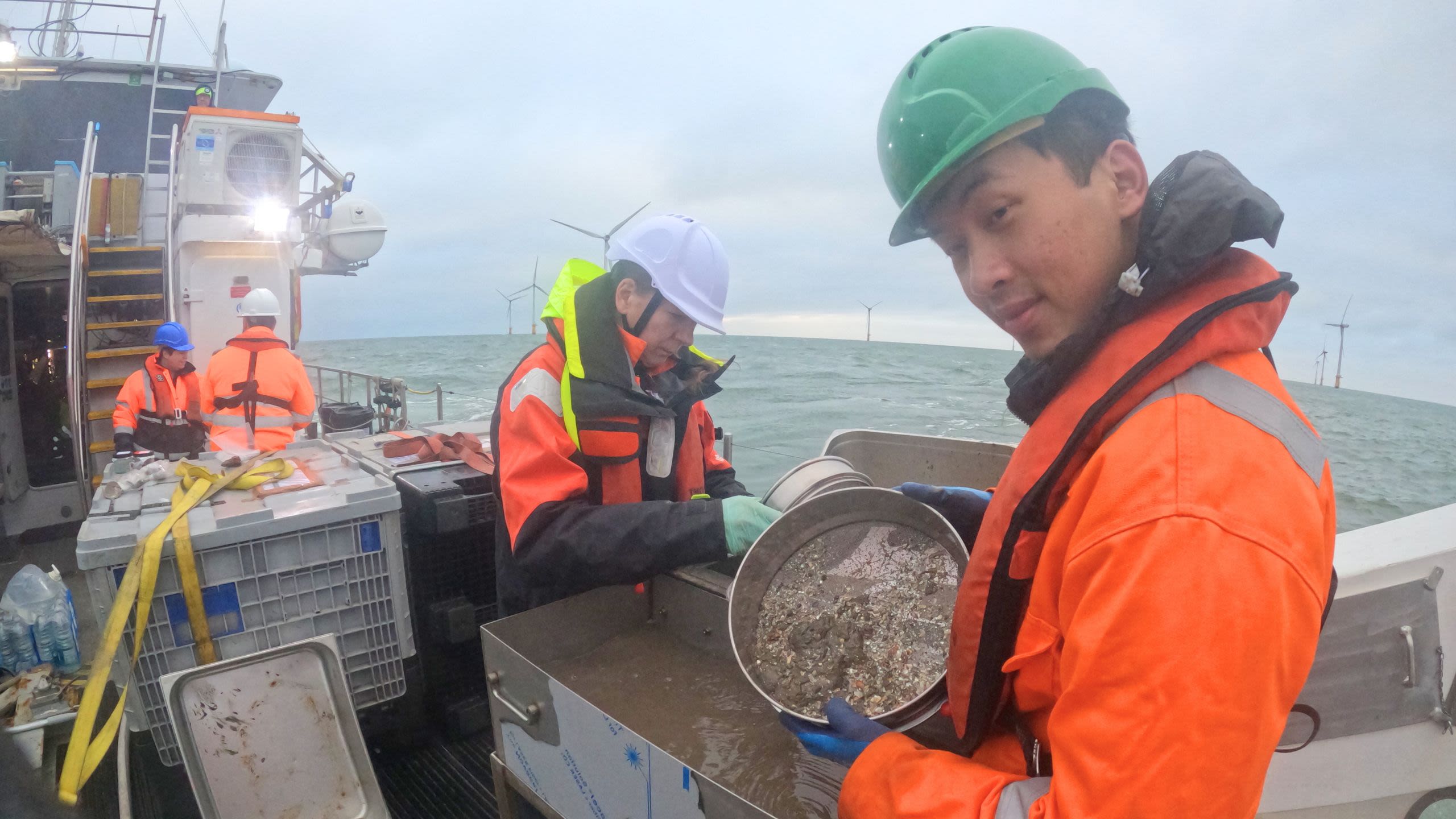
Find out more
Learn more about the School of Life Sciences
Discover research degrees
Sixty Stories
We’re celebrating 60 years of making change happen. 60 years of boldness and bravery from our students past and present. 60 years of creating change.

